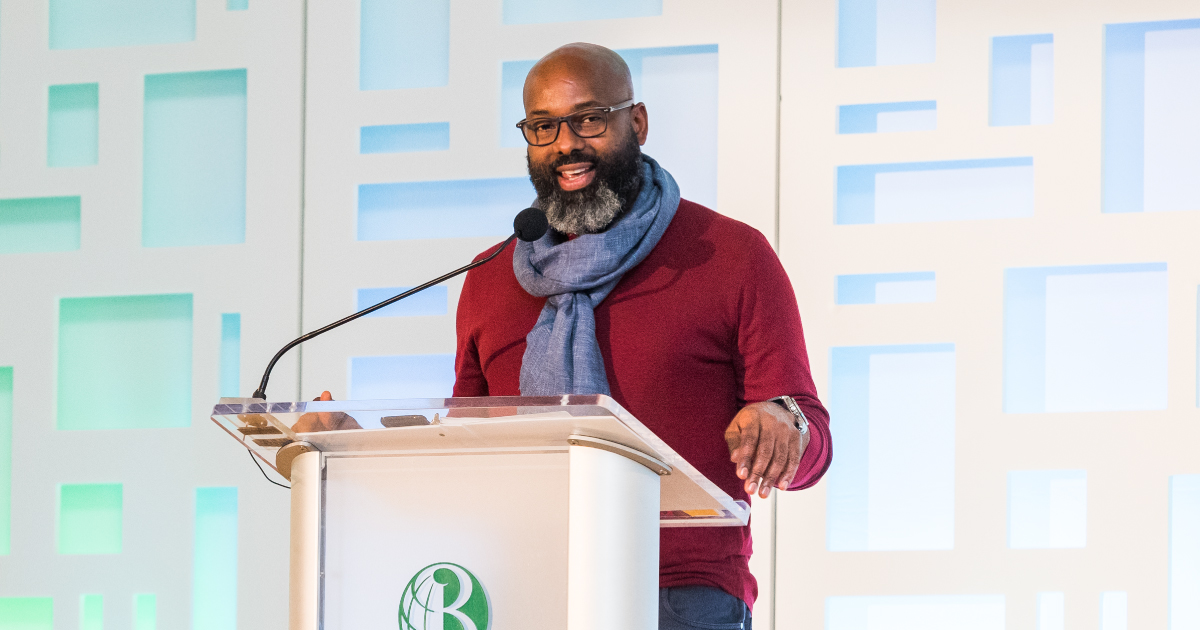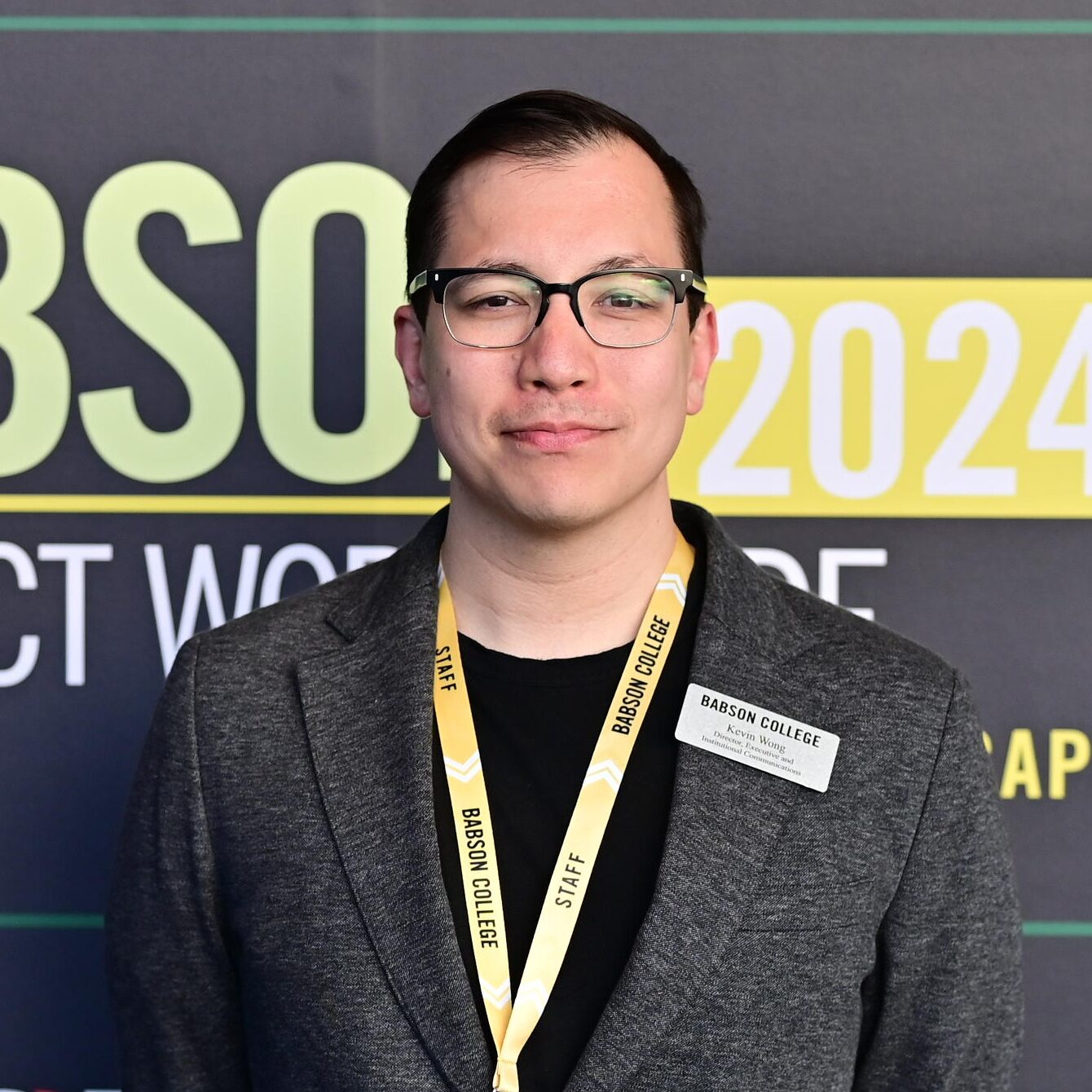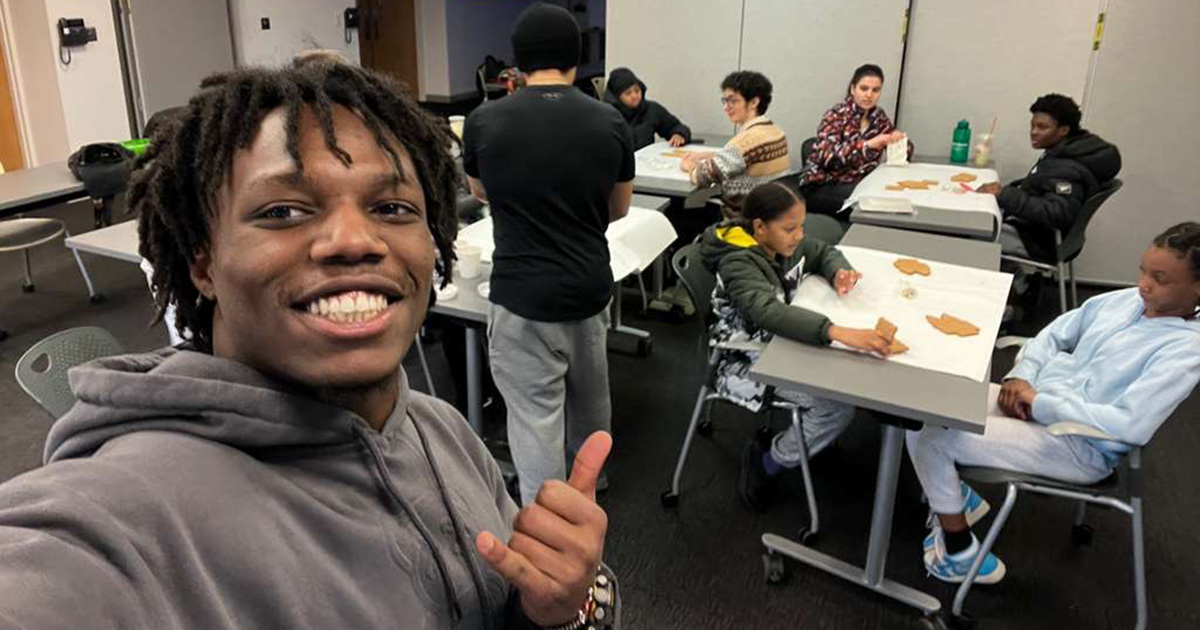We Need More Babsons: Richelieu Dennis on Economic Opportunity as a Vehicle for Change

Richelieu Dennis ’91 is an entrepreneur, investor, and social innovator changing the way we think about access and capital in business. As the founder, CEO, and executive chairman of Sundial Brands, founder and chairman of Essence Ventures (which owns Essence Communications), and founder of the New Voices Fund, he is creating economic opportunity for communities and people who would otherwise not have access to wealth and growth.
Babson College honored Dennis at the 2018 Alumni Entrepreneur Awards for his creativity, impact, and commitment to creating positive social change. With his platform, he understands his responsibility for all the work he still has to accomplish, and plans to continue to keep his head down until the work is finished.
We Need More Babsons
Growing up in Liberia, Dennis came to the United States to attend Babson College. Civil war prevented him from returning to the country after graduation. Driven by his passion for entrepreneurship, Dennis partnered with his best friend and college roommate, Nyema Tubman ’91, along with his mother, Mary Dennis, to address skin and hair care issues traditionally ignored by mass market companies. Since then, Dennis has made it his mission to create more spaces like the one he had to grow.
“We were in this world of Babson where we were supported, protected, insulated. I have always been grateful for that,” said Dennis addressing the crowd during the Alumni Entrepreneur Awards. “My role is to make sure the other children coming here from other countries and other communities that don’t necessarily have the opportunity to be in environments like Babson are here and are comfortable and feel safe and feel protected.”
“We need to create more Babsons across the country.”
Dennis spoke to the uniqueness of the Babson experience in being thoughtful about our differences by working together to bring change. Although the Babson community does not always need to see things the same way or agree on everything, nevertheless, he said, Babson knows we must “work to be positive and be a light that others can see.”
Identifying Our Differences
Dennis focused on the impact that our differences have on the way we experience the world. When starting his business with Tubman and his mother, Mary Dennis, they quickly experienced the difference between being an entrepreneur—and being a black entrepreneur, a woman entrepreneur, and a black woman entrepreneur. When facing all the challenges of an entrepreneur—and then identifying these additional differences— they soon learned, as Dennis recalled: “the challenges, they compile.”
In his work, Dennis is now focused on two things: bringing awareness to the differences and recognizing the destabilization that will be a result of communities not receiving economic opportunity in the form of funding.
“When people understand the difference between my being able to go into a bank and get a loan and a white person being able to go into a bank and get a loan, the differences are stark,” said Dennis. This type of prejudice is going to “inhibit communities from standing on their own.”
“When you think of the fact that women get funded less than a penny to the dollar of men,” Dennis said, “that is going to destabilize our communities if it continues.”
ACE (Access, Capital, Expertise)
Dennis’ track record of championing community reinvestment goes back almost three decades. He created Sundial’s purpose-driven business model called Community Commerce, which seeks to build economic sustainability within communities by equipping underserved people with access to the opportunities and resources that enable them to create lasting value for themselves and others. Last year, he established the New Voices Fund, which invests in women of color entrepreneurs using the ACE model—access, capital, and expertise—to address the biggest challenges they face in building a business.
Capital is always assumed to be the most important piece of an entrepreneur’s growth, but capital is the third most important. Access is number one. “If I don’t have an opportunity to walk into a bank and have equal footing . . . or [walk] into a supplier and have the same terms as my competitors, I’m not going to be successful.”
The second piece is expertise. “You can be thoughtful, you can be imaginative, you can be resourceful, but at some point you need people that already have done it to help you do it.”
Finally, capital is the third piece. Without understanding the challenges of an entrepreneur—even with capital—there is a risk the community is blamed for any form of failure. Therefore, access, expertise, and capital must all work in harmony to create success.
The ACE model is used across the New Voices ecosystem to demonstrate the economic viability of investing in these communities and to ensure that women of color entrepreneurs are receiving a full spectrum of support to help level the playing field. Since the announcement of the New Voices Fund in July 2018, $40 million has been invested into nine companies, and another 4,000 companies have joined the New Voices community to apply for funding or other resources. This shows the true need and demand for this type of strategy in investing.
In conclusion, Dennis emphasized how much work still needs to be done. “I will shut up now, and get back to work.”
Posted in Entrepreneurial Leadership





